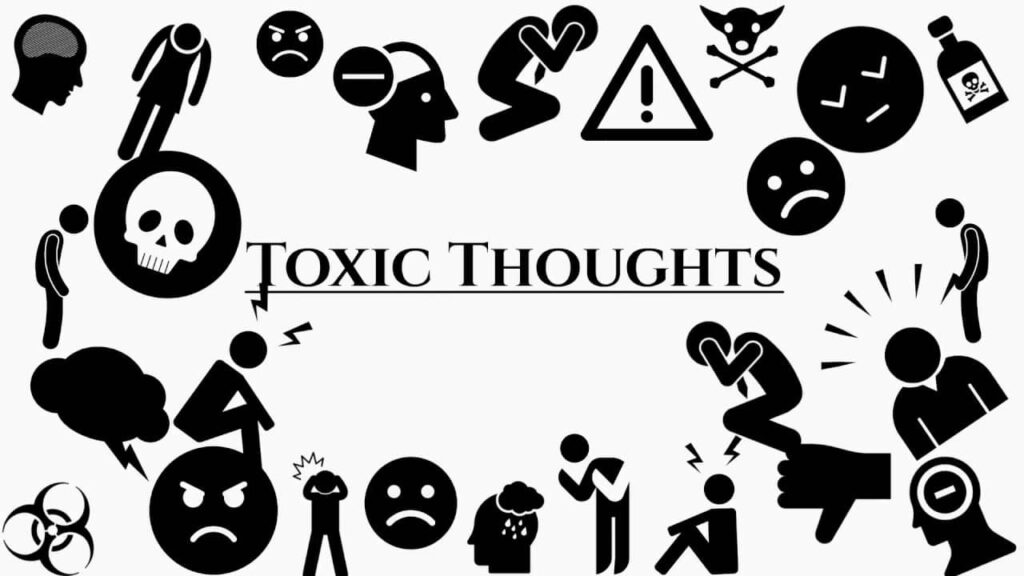Time to Break Free from Your Toxic Thoughts

Have you ever found yourself ruminating on toxic thoughts or feeling stuck in a cycle of worry and self-doubt? If so, you may be dealing with toxic thoughts, a type of thinking that can take a serious toll on your mental health and wellbeing.
Toxic thoughts are patterns of thinking that are negative, self-critical, and often irrational. They can range from worries about the future to regrets about the past, and can leave you feeling anxious, depressed, or overwhelmed. In this article, we’ll explore some common types of toxic thoughts and provide practical tips for recognizing and overcoming them.
Types of Toxic Thoughts:
- Negative Self-Talk: This is when you constantly criticize yourself and focus on your perceived flaws and failures.
- Catastrophizing: This is when you blow things out of proportion and imagine the worst-case scenarios.
- All-or-Nothing Thinking: This is when you see things as black or white, with no shades of gray in between.
- Mind Reading: This is when you assume that you know what others are thinking and base your behavior on those assumptions.
Recognizing Negativity:
The first step in overcoming toxic thoughts is to recognize them when they occur. Some common signs that you may be dealing with toxic thoughts include:
- Feeling overwhelmed by negative emotions, such as fear, anger, or sadness
- Feeling stuck in a cycle of worry or self-doubt
- Finding it hard to focus or concentrate
- Feeling physically tense or agitated
Overcoming Negative Thinking Patterns:
Here are several strategies you can use to break free from you negative thoughts:
- Challenge Your Thoughts: Ask yourself whether your thoughts are based in reality or whether you’re catastrophizing or engaging in all-or-nothing thinking. Try to reframe your thoughts in a more positive light.
- Practice Self-Compassion: Treat yourself with kindness and understanding, just as you would a close friend. Remind yourself that it’s okay to make mistakes and that you’re doing the best you can.
- Practice Mindfulness: Learn to be present in the moment and to observe your thoughts without judgment. This can help you to gain distance from your toxic thoughts and to see them more objectively.
- Get Support: Talk to a trusted friend or family member, or consider seeking professional help from a therapist. Having someone to talk to can help you to gain perspective and to work through your toxic thoughts.
Thinking negatively can be a serious obstacle to happiness and wellbeing, but they don’t have to control your life. By recognizing your them and practicing strategies for overcoming them, you can free yourself from the cycle of negative thinking and begin to live a happier, more fulfilling life.









